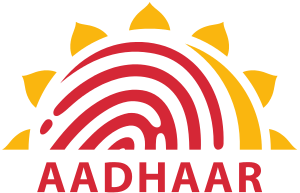The ongoing challenge in the Supreme Court regarding the linking of Aadhaar for filing of income tax returns, and making it mandatory for PAN, has reached Day 5 when the Union of India continued its arguments. We have been updating details from court proceedings from day 1, 2, 3, and 4 as well.
Day 5 of the hearing began with Dr. Arghya Sengupta laying the following points before the Bench:
-
The doctrine of proportionality is not a facet of Article 14 of the Constitution. It can only be invoked in cases where there is a balancing of rights and restrictions, and Article 14 does not envisage any such balance. Citing the case of K.T. Plantation vs. State of Karnataka, Dr. Sengupta said that the plea of proportionality is subjective by nature and therefore cannot be used to strike down a statute. He further mentioned that proportionality under Article 14 applies only to executive action and not legislative action. A long list of English cases were cited in this regard and to support the argument that in the UK, the doctrine of proportionality is not applied even today. He concluded by saying that the traditional principles of equality followed by Indian judiciary are strong and there is no need to import new principles to this case.
-
There is no absolute right to self determination under Article 21 in India. The state can ask for information from its citizens. Even if we had the right to informational self determination, it cannot be absolute. Further, the conception of privacy prevailing in different parts of the world cannot be incorporated in India. The social and cultural situation has to be assessed before giving meaning to this concept.
-
The safety and security of biometrics as a tool for identification has been studied and analyzed and it has been proven that it is the most fool proof method. He stated that the Aadhaar Act provides privacy protection under Chapter 6 of the Act and under Section 70 of the Information Technology Act, 2000. It was also pointed out that the UIDAI database has never been compromised.
Mr. Zoheb Hossain, Advocate-on-Record, continued the State’s argument. He made the following points:
-
A progressive taxation regime is itself a facet of equality under Article 14. Inclusion of Aadhaar strengthens Article 14 as it eliminates inequality between honest tax payers and individuals avoiding tax and holding multiple bogus PAN cards.
-
Every conduct is not free speech. In the present case, it is speech combined with action and therefore it cannot have protection under Article 19(1)(a). He cited United States vs. David Paul O’Brien to substantiate his argument.
After the state concluded its arguments, Senior Counsel, Mr. Shyam Divan replied from the petitioners’ side. His arguments are as follows:
-
The state has reconciled the voluntary nature of the Aadhaar Act and the mandatory nature of Section 139AA of Income Tax Act to infer that Aadhaar is mandatory. Section 3(1) of the Aadhaar Act uses the word “entitled” and not “obliged”. Section 3(2) says that the enrolling agency shall “inform” enrolling individuals, the manner in which their information shall be used, the nature of recipients with whom the information might be shared, the existence of a right to access information. Section 7 says alternate means of identification is to be provided if Aadhaar is not assigned. Section 8(2)(a) requires consent of an individual before collection of information. Aadhaar enrolment form also states that its free and voluntary. The Aadhaar Authentication Regulation number 6 states that consent of Aadhaar holder is required for authentication. The proviso to Section 57 states that the section is subject to the procedure and obligation under Section 8. The aforementioned sections establish the voluntary nature of Aadhaar as provided in the Act itself. Further, the absence of any sanctions in the Act for non compliance reinforces this fact. Mr. Divan pointed out that the UIDAI website itself claims that Aadhaar is voluntary.
-
Replying to the Attorney General’s argument that Aadhaar act cannot be struck down for lack of legislative competence, Mr. Divan pointed out that there are implied limitations to legislative competence. One of the implied limitations is that the state cannot coerce people to part with their biometric data. We are long past slavery and servitude. He further mentioned that the trajectory of the state’s arguments will create a chilling effect. He emphasized the enormous threat to civil liberties in the present case and prayed to the court to pass interim orders, in case the matter is referred to a larger bench.
Senior Counsel, Mr. Arvind P. Datar continued arguing for the petitioners’ made the following point before the court rose for the day:
-
The Aadhaar Act fails on the aspect of legislative competence. The Supreme Court has passed various orders saying Aadhaar is voluntary and nobody can be forced to enrol under it. The state has repeatedly defied these orders. On the assumption that there’s no Supreme Court order, even then Aadhaar Act and Income Tax Act have to be harmoniously construed, which means that Section 139AA of the IT Act has to be read down.
The hearing in the present matter will be concluded tomorrow with Mr. Datar finishing his final arguments.


